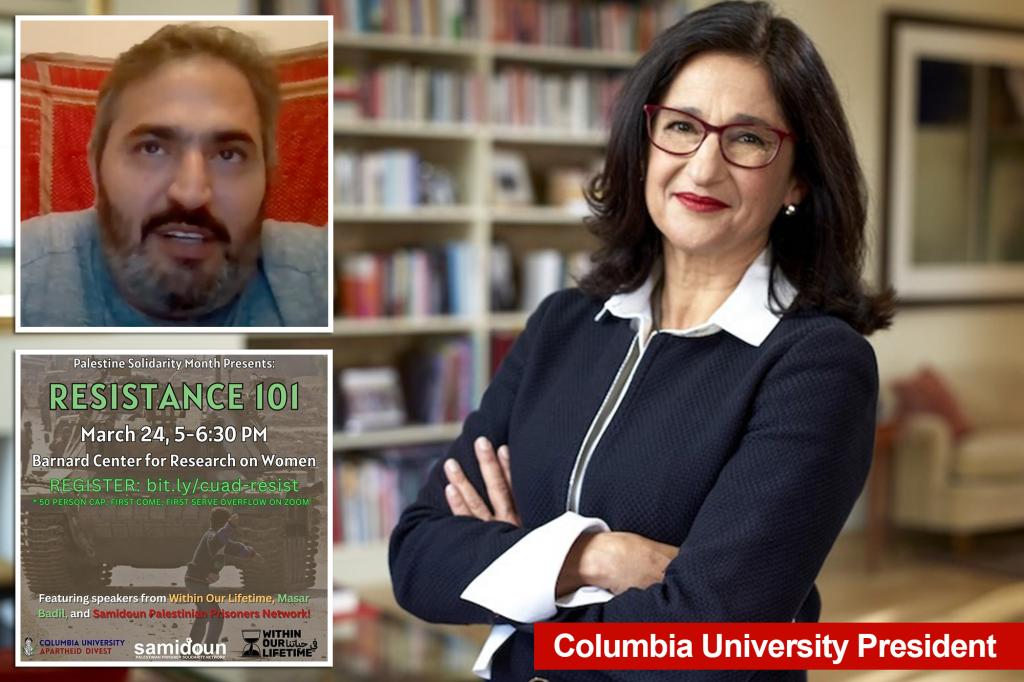Columbia University has indefinitely suspended four students for participating in an unsanctioned campus talk led by Palestinian activist Khaled Barakat. The event, titled “Resistance 101,” focused on the Gaza conflict and Barakat’s alleged ties to a designated terrorist organization. Students were dismissed from their campus housing and given 24 hours to vacate after the meeting.
Barakat, who is accused of being a member of the Popular Front for the Liberation of Palestine, discussed speaking with Hamas, Islamic Jihad, and the PFLP about stopping Israeli aggression. He emphasized the importance of student protests in America in supporting the resistance in Gaza. The students were charged with violating campus policies, endangerment, disruptive behavior, and other offenses following an investigation conducted by an outside firm.
University President Minouche Shafik condemned the event as a breach of the institution’s values and stressed that consequences for violating campus policies must be enforced. Initially, six students were suspended, but two were later cleared. The investigation into the meeting is ongoing, and a separate investigation is also underway into an unsanctioned pro-Palestinian demonstration that took place on April 4.
One of the students suspended for attending the “Resistance 101” meeting claimed to have lost a full-ride scholarship for a master’s in Middle East studies due to her participation. She expressed disappointment in Columbia University, calling it a complicit and violent institution. President Shafik acknowledged the impact of the Israel-Hamas conflict on the campus community and reiterated the need for consequences for actions that violate campus policies.
The university has barred the event from taking place twice before, indicating repeated violations of their policies. The students involved in the meeting were found to be in support of terrorism and promoting violence, according to President Shafik. The campus has been shaken by the ongoing conflict between Israel and Hamas, with the humanitarian crisis in Gaza further exacerbating tensions on campus.
While Shafik stated that she does not aim to punish students, she emphasized that actions in violation of campus policies must have consequences. The suspended students are facing charges of endangerment and disruptive behavior, among others. Columbia University has been impacted by the divisive nature of the Israel-Hamas conflict, with tensions rising on campus as a result of events like the “Resistance 101” meeting and subsequent pro-Palestinian demonstration.


